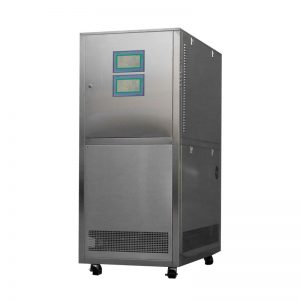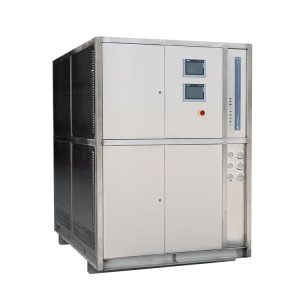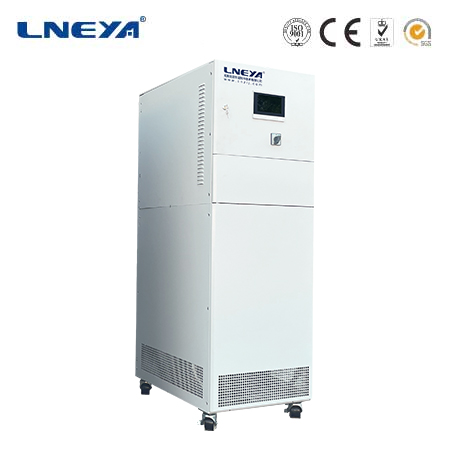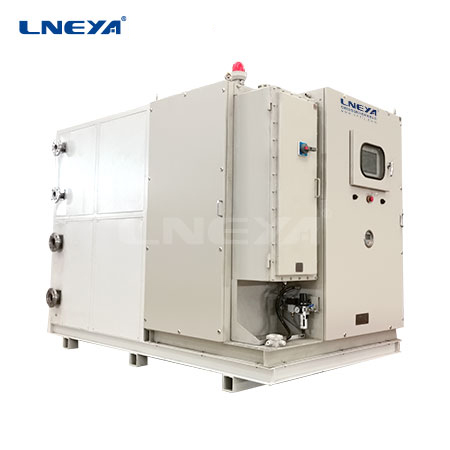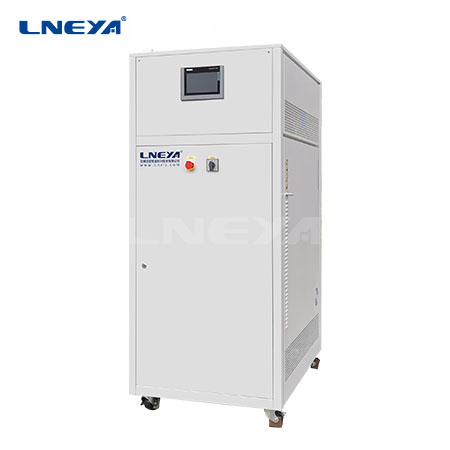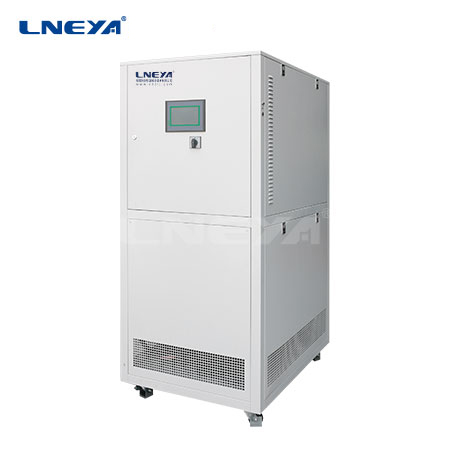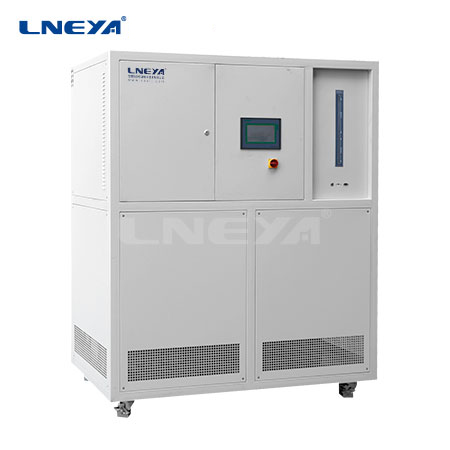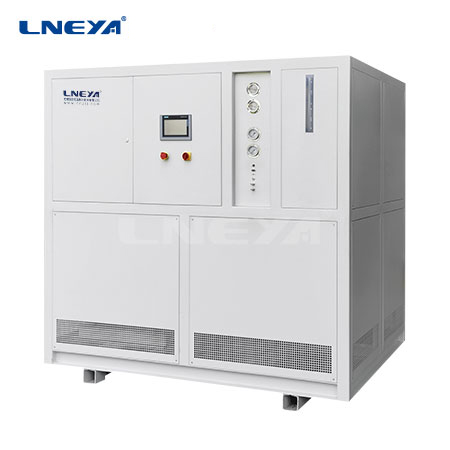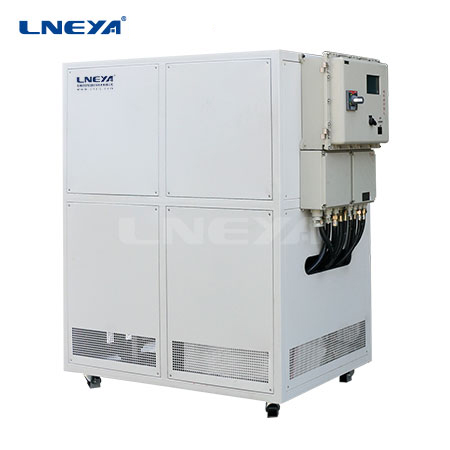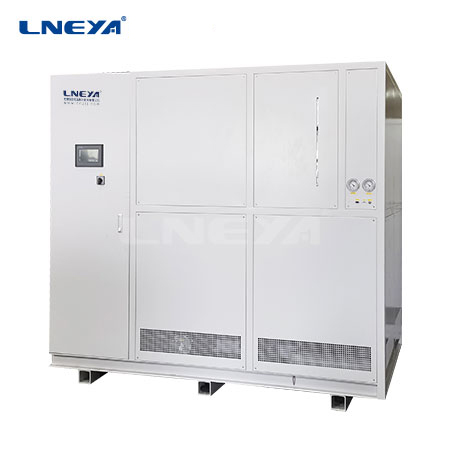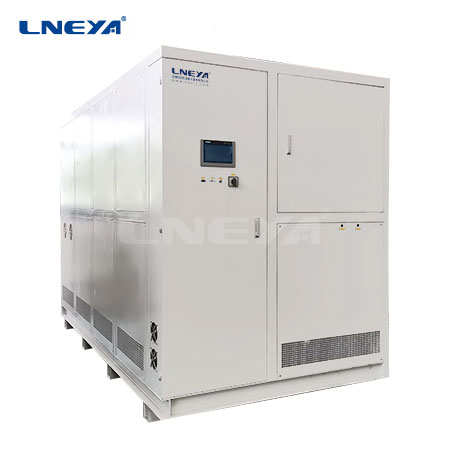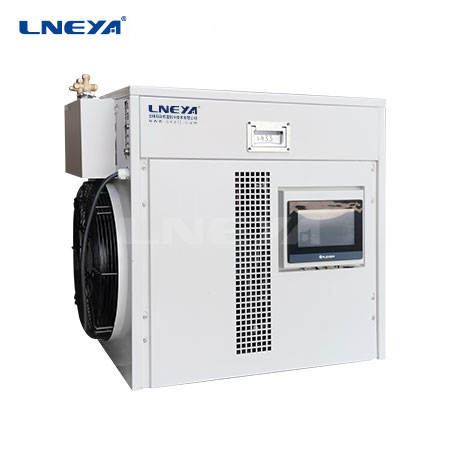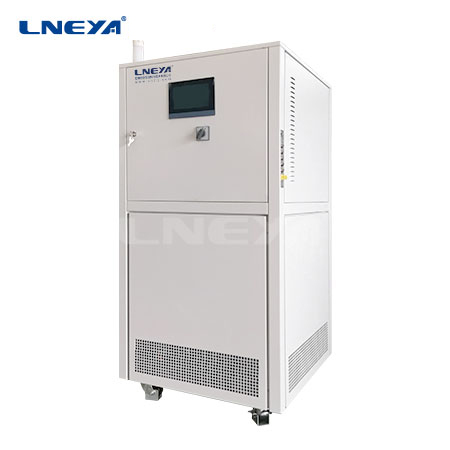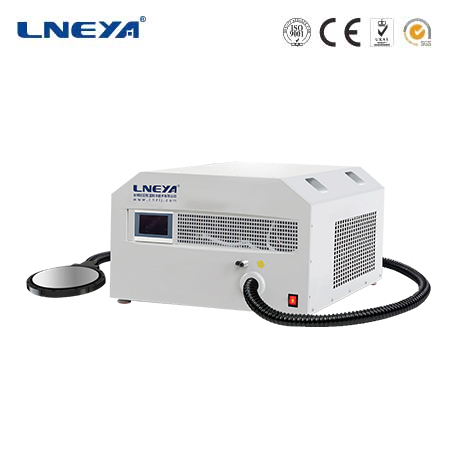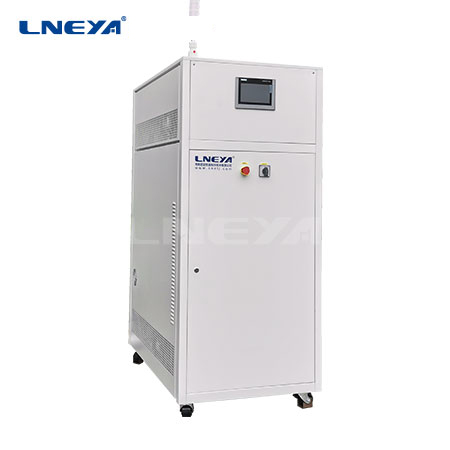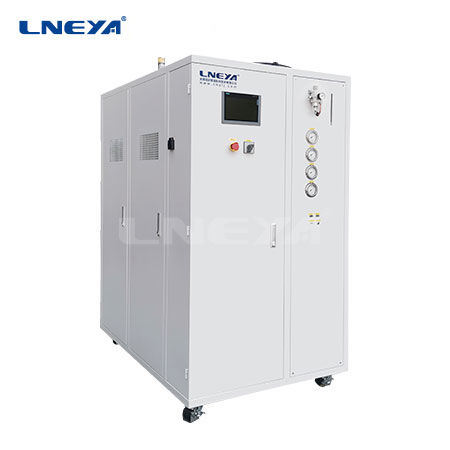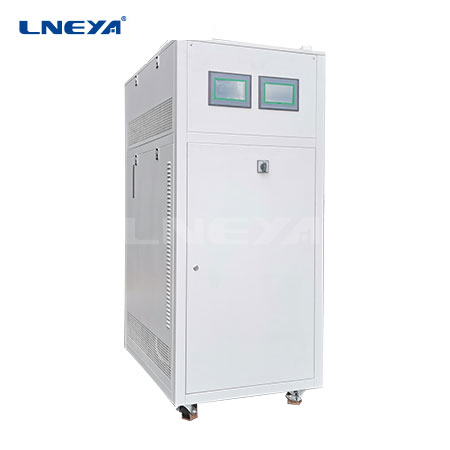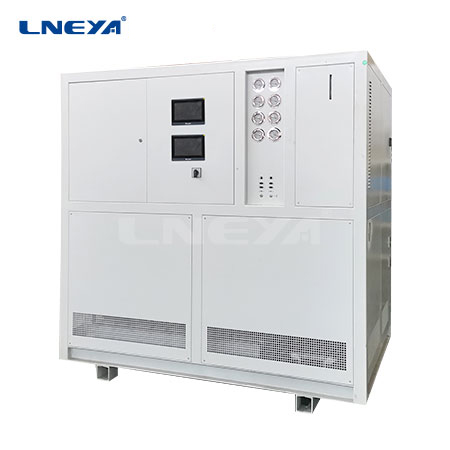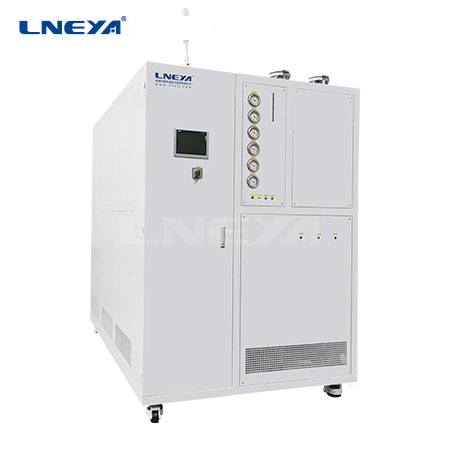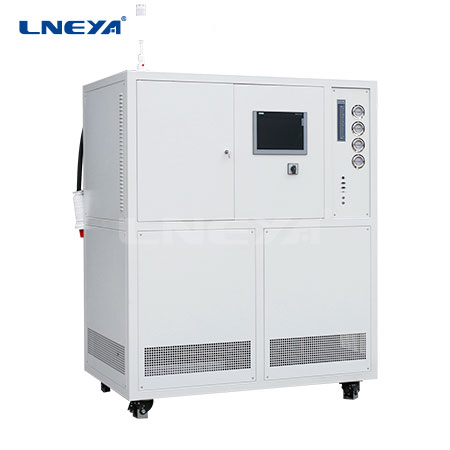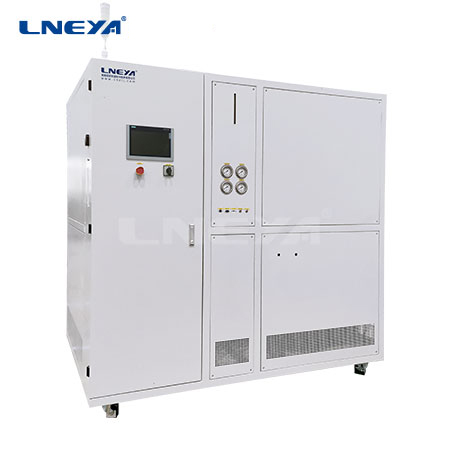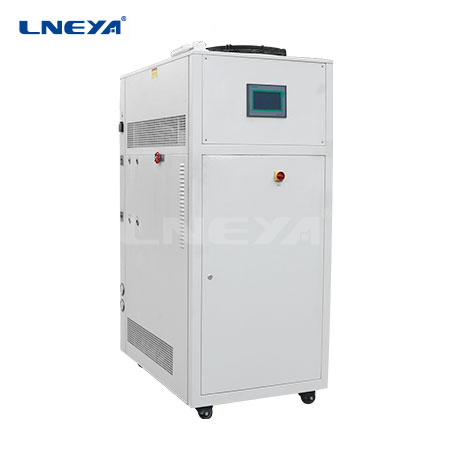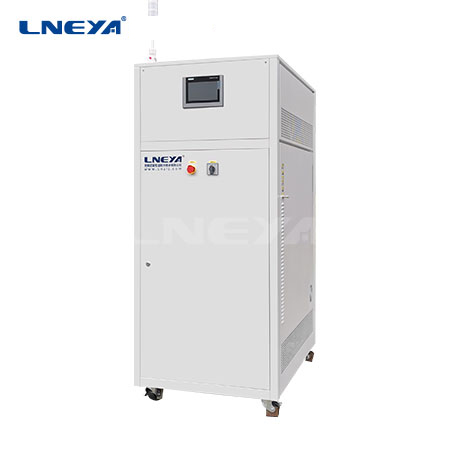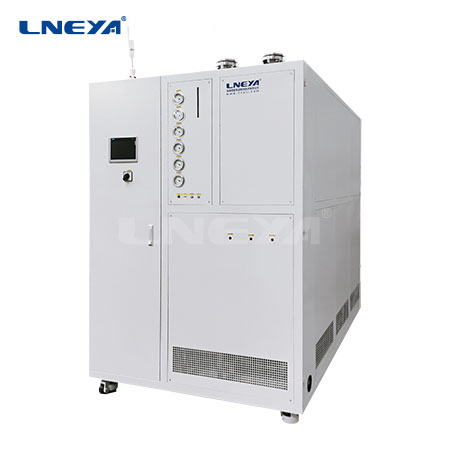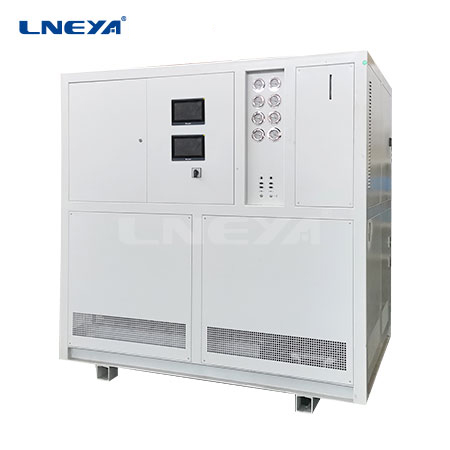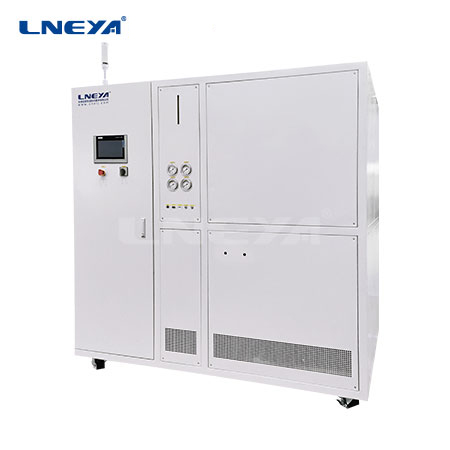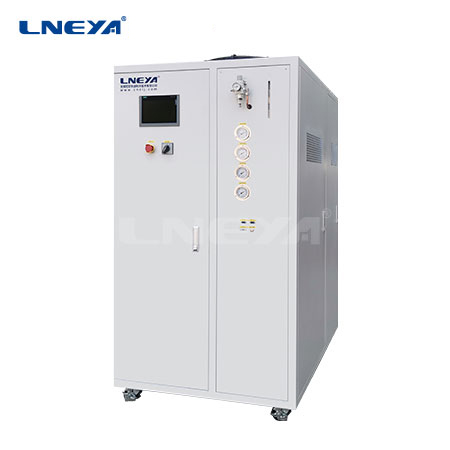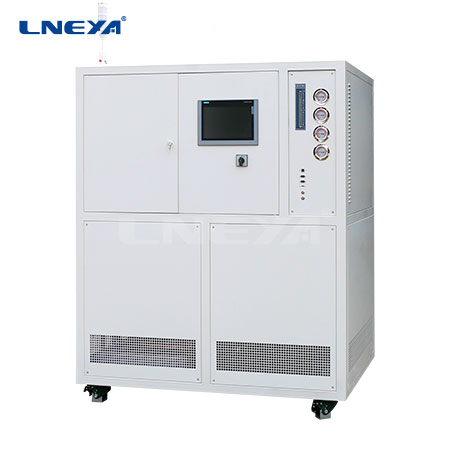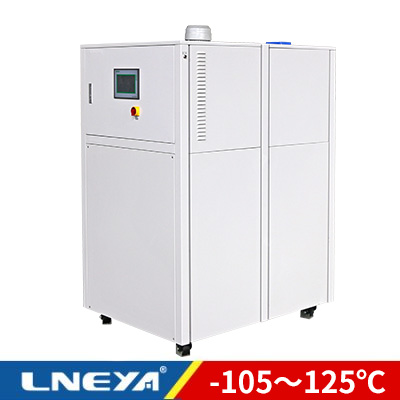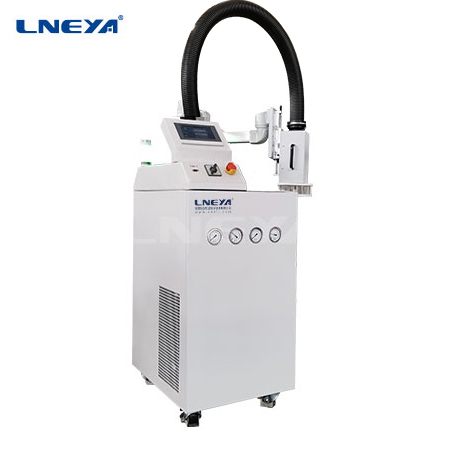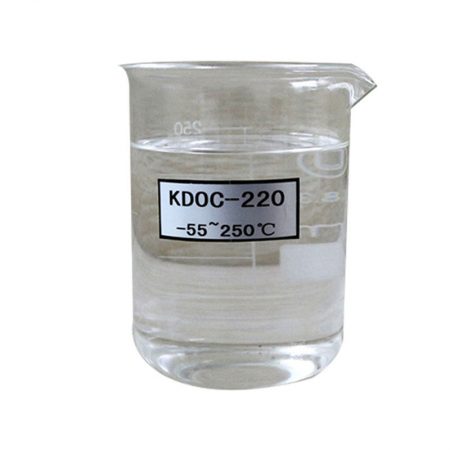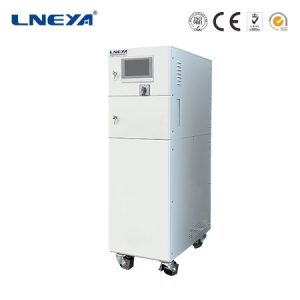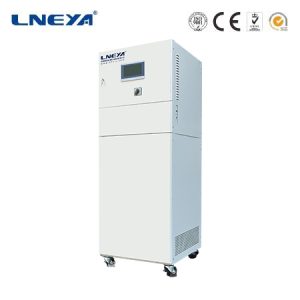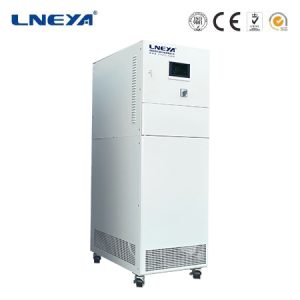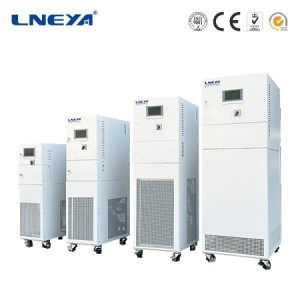Recirculating Water Cooling System
Kontaktieren Sie uns noch heute für die perfekte Lösung zur Temperaturkontrolle
The recirculating water cooling system is a method for heat dissipation. Its principle is to use water as a medium to quickly dissipate heat through circulation to achieve a cooling effect. This system is widely used in industry, aviation, military and other fields, and is also increasingly used by PC overclockers.
Composition of recirculating water cooling system
The recirculating water cooling system mainly consists of water pumps, cold radiators, water tanks, water pipes, flow meters, thermometers, refrigerants, insulation materials, etc.
The principle of recirculating water cooling system
A cooling water system that uses water as the cooling medium and circulates it. Mainly composed of cooling equipment, water pumps and pipelines. After the cold water flows through the production equipment that needs to be cooled (often called heat exchange equipment, such as heat exchangers, condensers, reactors), the temperature rises. If it is discharged immediately, the cold water is only used once (called a once-through cooling water system), so that the cold water can be heated up. After flowing through the cooling equipment, the water temperature drops back and can be pumped back to the production equipment for reuse. The consumption of cold water is greatly reduced, often saving more than 95%. Cooling water accounts for about 70% of industrial water consumption. Therefore, the cooling water circulation system plays a role in saving a large amount of industrial water.
The lower-temperature cooling water from the cooling tower is pressurized by the cooling pump and sent to the chiller. After taking away the heat of the condenser, the temperature rises, and then is sent to the cooling tower for spraying. Due to the cooling The rotation of the tower fan causes the cooling water to continuously exchange heat and moisture with the outdoor air during the spraying and falling process. The cooled water falls into the water collecting tray of the cooling tower and is then pressurized by the cooling pump again before entering the next stage. cycle.
Cooling equipment can be divided into open and closed types, so recirculating water cooling systems are also divided into open and closed types. Open systems are more complex to design and operate.
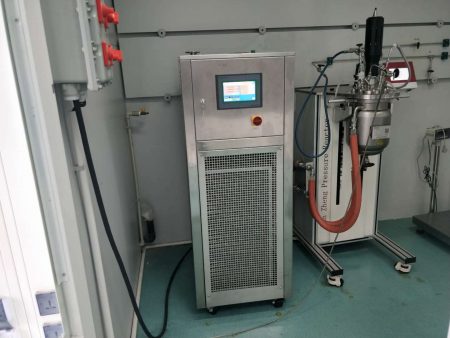
Open recirculating water cooling system
There are two types of cooling equipment: cooling pools and cooling towers, both of which mainly rely on the evaporation of water to reduce water temperature. Furthermore, cooling towers often use fans to promote evaporation, and the cooling water is often blown away. Therefore, the open recirculating water cooling system must be supplied with fresh water. The circulating water is concentrated due to evaporation, and the concentration process will promote salt scaling (see sediment control). Supplementary water has a dilution effect, and its flow rate is often determined based on the concentration limit of circulating water. Usually the amount of supplementary water exceeds the amount of water lost by evaporation and wind blowing, so some circulating water (called sewage) must be discharged to maintain the balance of water volume. recirculating water cooling system In an open system, due to the contact between water flow and the atmosphere, dust, microorganisms, etc. enter the circulating water; in addition, the escape of carbon dioxide and the leakage of materials in the heat exchange equipment also change the quality of the circulating water. For this reason, recirculating water cooling systems often require treatment, including sediment control, corrosion control and microbial control. The determination of the treatment method is often related to the quantity and quality of the make-up water, as well as the performance of the production equipment. When using multiple agents, possible chemical reactions between agents should be avoided.
Closed recirculating water cooling system
The closed recirculating water cooling system uses closed cooling equipment. The circulating water flows in the tube, and wind is usually used outside the tube to dissipate heat. Except for material leakage from heat exchange equipment, there are no other factors that change the quality of circulating water. In order to prevent salt scale in heat exchange equipment, sometimes the cooling water needs to be softened (see water softening). In order to prevent heat exchange equipment from being corroded, corrosion inhibitors are often added; pay attention to safety when using high-concentration, highly toxic corrosion inhibitors.
Wir bieten die Entwicklung und Herstellung kompletter Temperaturkontrollsysteme an. Von Standardmodellen bis zu kompletten kundenspezifischen Produkten bis hin zu 900 Tonnen. Wir haben uns auf den Kundenservice spezialisiert und sind bestrebt, jedem Kunden zu helfen, das optimale Temperaturkontrollsystem für seinen spezifischen Bedarf zu finden.
Wir bieten maßgeschneiderte Lösungen, die nicht dem Standard entsprechen. Es sind sowohl einzelne Kühlaggregate als auch kombinierte Kühl- und Heizaggregate erhältlich.
E-Mail: info@lneya.com WeChat ID: +8615251628237 WhatsApp: +86 17851209193

Rückkühler / Umwälzkühler
Die Kältemaschine kann in verschiedenen Industrien und Labors eingesetzt werden und unterstützt kundenspezifische Designs.
| Temperaturbereich | Serie -25°C ~ +30°C | -45°C ~ +30°C Reihe | Serie -60°C ~ -20°C | Serie -80°C ~ -20°C | Serie -120°C ~ -70°C | ||||
| Kühlleistung | 0,8 ~ 30kW | 0,75 ~ 12kW | 0,4 ~ 6kW | 0,2 ~ 6kW | 0,3 ~ 5kW | ||||
| Hinweis: Jeder Temperaturbereich von -150℃ ~ +350℃ und jede Kühlleistung kann angepasst werden | |||||||||
 Kaltwassersätze / Kleinkaltwassersätze
Kaltwassersätze / Kleinkaltwassersätze
Die Kältemaschine kann in verschiedenen Industrien und Labors eingesetzt werden und unterstützt kundenspezifische Designs.
| Temperaturbereich | -18°C ~ +30°C | +5°C ~ +35°C Reihe | |||||||
| Kühlleistung | 0,35 ~ 0,9kW | 1,8 ~ 50kW | |||||||
| Hinweis: Jeder Temperaturbereich von -150℃ ~ +350℃ und jede Kühlleistung kann angepasst werden | |||||||||

Niedertemperatur-Kühlgeräte
Wir haben uns auf die Herstellung von Niedertemperaturkältemaschinen mit einem Temperaturregelbereich von bis zu -150°C spezialisiert, die den Kühlbedarf verschiedener Branchen decken.
| Temperaturbereich | Serie -25°C ~ -5°C | Serie -45°C ~ -10°C | Serie -60°C ~ -10°C | Serie -80°C ~ -30°C | Serie -110°C ~ -50°C | Serie -150°C ~ -110°C | |||
| Kühlleistung | 12 ~ 360kW | 6 ~ 180kW | 6 ~ 180kW | 4 ~ 180kW | 2 ~ 120kW | 2,5 ~ 11kW | |||
| Hinweis: Jeder Temperaturbereich von -150℃ ~ +350℃ und jede Kühlleistung kann angepasst werden | |||||||||

Hochtemperatur-Kühlgeräte
Die Kältemaschine kann in verschiedenen Industrien und Labors eingesetzt werden und unterstützt kundenspezifische Designs.
| Temperaturbereich | +5°C ~ +40°C | -25°C ~ +40°C | -45°C ~ +40°C | -80°C ~ +80°C | -100°C ~ +80°C | ||||
| Kühlleistung | 6 ~ 40kW | 2 ~ 15kW | 1 ~ 8kW | 0,6 ~ 3kW | 1,5 ~ 3kW | ||||
| Hinweis: Jeder Temperaturbereich von -150℃ ~ +350℃ und jede Kühlleistung kann angepasst werden | |||||||||
Kühlen und Heizen Kaltwassersätze

Kühlen und Heizen Kaltwassersätze
Temperaturregelbereich: -120°C bis +350°C
Kühl- und Heizungsthermostate, die in verschiedenen Industriezweigen weit verbreitet sind.
| Temperaturbereich | Serie -10 ~ +150°C | Serie -25 ~ +200°C | Serie -25 ~ +300°C | Serie -45 ~ +250°C | Serie -45 ~ +300°C | Serie -60 ~ +250°C | Serie -60 ~ +300°C | Serie -70 ~ +250°C | Serie -80 ~ +250°C | Serie -90 ~ +250°C | Serie -100 ~ +100°C | ||
| Kühlleistung | 1,5 ~ 15kW | 1 ~ 200kW | 1 ~ 200kW | 0,45 ~ 200kW | 0,9 ~ 25kW | 0,25 ~ 60kW | 0,75 ~ 25kW | 0,4 ~ 15kW | 0,3 ~ 80kW | 0,2 ~ 80kW | 0,45 ~ 80kW | ||
| Hinweis: Jeder Temperaturbereich von -150℃ ~ +350℃ und jede Kühlleistung kann angepasst werden | |||||||||||||

Kühlgeräte mit Rücklaufheizung
Temperaturregelbereich: -45°C bis +250°C
| Temperaturbereich | Serie -25°C ~ +200°C | Serie -45°C ~ +250°C | |||||||
| Kühlleistung | 1 ~ 15kW | 0,25 ~ 15kW | |||||||
| Hinweis: Jeder Temperaturbereich von -150℃ ~ +350℃ und jede Kühlleistung kann angepasst werden | |||||||||
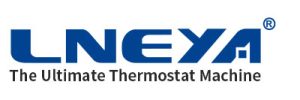 LNEYA
LNEYA
 简体中文
简体中文










